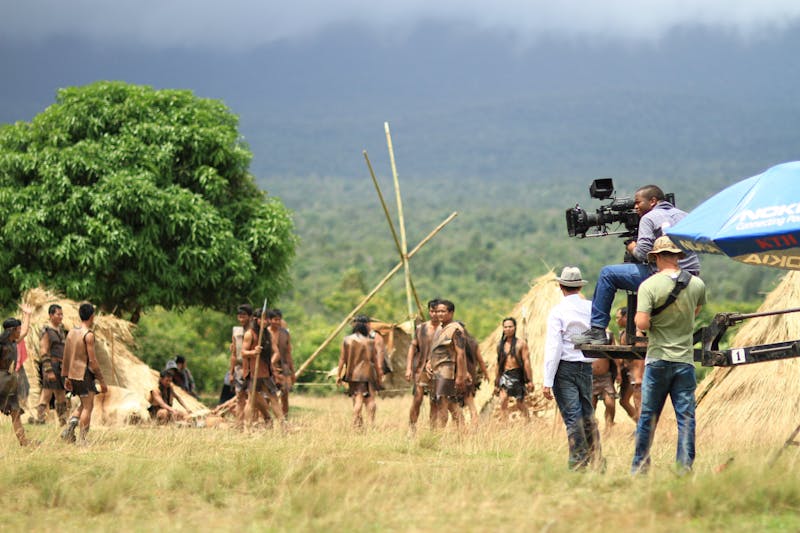Educational Documentaries for Lifelong Learners

Educational documentaries are a powerful tool for lifelong learners, offering in-depth insights into various subjects ranging from history and science to social issues and personal development. These films serve as accessible resources for those seeking to expand their knowledge beyond traditional classroom settings. By presenting complex topics in engaging formats, educational documentaries make learning an enjoyable and immersive experience for audiences of all ages.
The Benefits of Educational Documentaries
One of the main advantages of educational documentaries is their ability to present information in a visually stimulating way. Unlike textbooks or lectures, documentaries use visuals, interviews, and real-world examples to make the content more relatable and easier to understand. This multimedia approach caters to different learning styles, helping viewers retain information more effectively.
Additionally, educational documentaries often feature experts and firsthand accounts, providing credible and authoritative perspectives on various topics. For instance, the documentary "Planet Earth," narrated by David Attenborough, features stunning visuals and expert commentary on wildlife and natural habitats. Such films not only educate but also inspire viewers to appreciate and protect our environment.
Moreover, educational documentaries can foster critical thinking by presenting multiple viewpoints on controversial issues. They encourage viewers to analyze information critically, question assumptions, and form their own informed opinions. This aspect is particularly valuable in today’s information-rich society where discerning accurate information from misinformation is crucial.
Popular Educational Documentaries
Several documentaries have gained widespread acclaim for their educational value. "Cosmos: A Spacetime Odyssey," hosted by astrophysicist Neil deGrasse Tyson, explores the universe's mysteries, making complex scientific concepts accessible to general audiences. Another notable example is "13th," directed by Ava DuVernay, which examines the intersection of race, justice, and mass incarceration in the United States.
"Inside Job," directed by Charles Ferguson, provides an in-depth analysis of the 2008 financial crisis, shedding light on economic principles and the factors leading to the downturn. Similarly, "The Social Dilemma" delves into the impact of social media on society, highlighting both its benefits and potential dangers.
The table below lists some other popular educational documentaries across various fields:
| Title | Field | Description |
|---|---|---|
| "Super Size Me" | Health | An exploration of the fast food industry's impact on health. |
| "Blackfish" | Animal Rights | A critical look at the captivity of killer whales at SeaWorld. |
| "An Inconvenient Truth" | Environmental Science | A presentation by Al Gore on climate change. |
| "Jiro Dreams of Sushi" | Culinary Arts | A portrait of an acclaimed sushi chef's dedication to his craft. |
| "The Fog of War" | History | An examination of war through the experiences of former U.S. Secretary of Defense Robert S. McNamara. |
How to Choose Quality Educational Documentaries
Selecting high-quality educational documentaries can be challenging given the vast array available. It's essential to consider several factors to ensure the chosen film provides valuable and accurate information. Firstly, check for credibility by looking at the filmmakers' backgrounds and any experts featured in the documentary. Reputable directors or producers usually adhere to high standards of research and fact-checking.
Additionally, read reviews from trusted sources such as academic journals or well-known media outlets. These reviews often provide insights into the documentary's accuracy and educational value. Platforms like Rotten Tomatoes or Metacritic aggregate critic and audience reviews that can help gauge a documentary's reception.
- Check for credibility: Look into the filmmakers' backgrounds.
- Read reviews: Consult academic journals or trusted media outlets.
- Consider multiple viewpoints: Choose documentaries that present balanced perspectives.
- Avoid sensationalism: Be wary of films that prioritize drama over factual accuracy.
- Seek out reputable platforms: Use established streaming services known for quality content.
The Future of Educational Documentaries
The future of educational documentaries looks promising with advancements in technology making these films more accessible and engaging. Streaming platforms like Netflix, Amazon Prime Video, and Disney+ have dedicated sections for documentaries, allowing viewers to easily discover new content. Virtual reality (VR) technology also holds potential for creating immersive educational experiences that go beyond traditional viewing methods.
The integration of interactive elements into documentaries is another exciting development. Interactive features enable viewers to engage with content actively rather than passively consuming it. For instance, they might choose different paths within a documentary or access additional resources linked within the film. This engagement can enhance understanding and retention of information.
Educational documentaries offer a dynamic way to learn about various subjects outside traditional education settings. Their ability to present complex topics in an engaging manner makes them invaluable tools for lifelong learners. With technological advancements enhancing accessibility and interactivity, these films are set to become even more integral to personal and professional development.
The selection process for quality educational documentaries should involve checking for credibility, reading trusted reviews, considering multiple viewpoints, avoiding sensationalism, and using reputable platforms. These steps ensure that viewers gain accurate and valuable insights from their viewing experiences. As technology continues to evolve, educational documentaries will likely become more interactive and immersive, further enriching the learning experience for audiences worldwide.